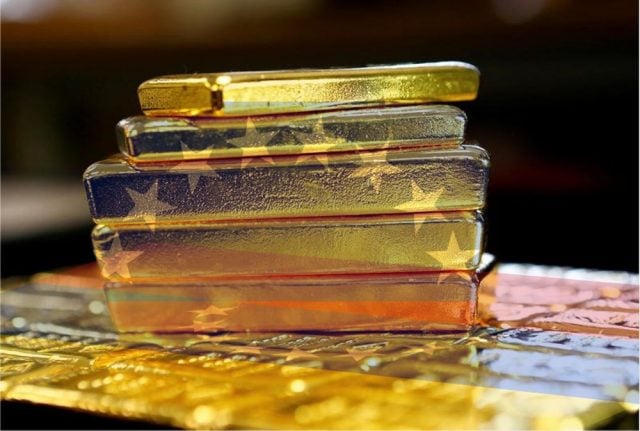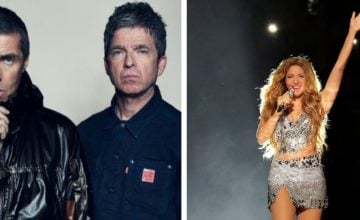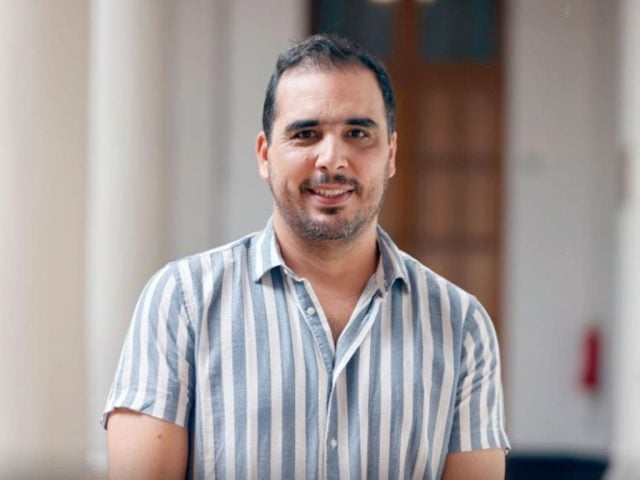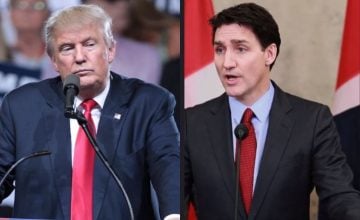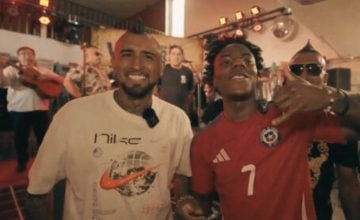The case of the Venezuelan gold held in the Bank of England was not resolved by the British Supreme Court. The highest court has decided to refer the case to the Commercial Court to resolve the substantive question: who should be granted access to the 31 tons of the precious metal owned by Caracas.
The problem arises because the Venezuelan Government, headed by Nicolás Maduro, claims ownership of these State resources. However, the United Kingdom has refused to hand them over because London only recognizes the former opposition deputy Juan Guaidó as the «interim president» of the South American country.
In the ruling, although the Court assures that the British courts cannot contradict the decision of the British Executive to recognize Guaidó, it considers that the rulings issued by the Supreme Court of Justice of Venezuela (TSJ), which qualified null and invalid all acts promoted by the former opposition deputy, when he presided over the National Assembly, should be evaluated.
And now what will happen to the gold?
From now on, what remains to be determined is whether the United Kingdom can recognize the decisions of the Venezuelan Supreme Court as valid, a body that does not recognize the opposition politician. This decision suspends the settlement of these reserves for the two parties that claim them.
However, the Supreme Court ruling highlights the conflict involved in any decision. Although the Court insists that the question of the recognition of Guaidó «has been unnecessarily complicated», it maintains that for London what is relevant is «the identity of the head of State, not the head of the Government», that is, it tacitly admits that the former deputy does not exercises the executive functions of the country.
The court’s argument to defend its position is that legal decisions in the United Kingdom must comply with the «one voice principle», which is that the Executive’s statements are conclusive «on whether a person should be considered as head of State». Under that logic, if London recognizes Guaidó as president, even if he is not, the court does not argue on that matter.
“The declaration of her Majesty’s Government in the United Kingdom was a clear and unequivocal recognition of Mr. Guaidó as president of Venezuela, which necessarily implied that Mr. Maduro was not recognized as president of Venezuela. Therefore, according to the principle of one voice, it is not necessary to go further «, asserts the sentence, which also qualifies as «wrong» the previous ruling of the Court of Appeals that questioned the legitimacy of the former deputy.
According to the Court of Appeals, the recognition of Guaidó was not clear because when he was admitted as «interim president», the United Kingdom continued to maintain relations with the Maduro government. «The confidence of the Court of Appeal in the obsolete concepts of de jure and de facto recognition was also out of place», said the Supreme Court.
But even if the Justice in the United Kingdom decides unilaterally to settle the issue of recognition of Guaidó under that principle, it cannot dictate the invalidity of the decisions made sovereignly by the Supreme Court of Venezuela. In the ruling, the Supreme refers to a rule that establishes that the British courts “will recognize and will not question, the effect of an act of the executive of a foreign State in relation to any act that takes place or has effect within the territory of that State».
According to this rule, if the Supreme Court annulled Guaidó’s appointments – including that of his «attorney» and the «ad hoc» board that now bids for the gold at the Bank of England – this should be recognized without question by the United Kingdom. If so, it would invalidate any recourse that the ex-deputy files to seize the resources of Venezuela.
That is the loose end of the decision, which will now go to the Commercial Court «for further examination», said the Supreme Court. However, in its presentation it anticipates that the courts «will refuse to recognize or give effect to foreign judgments such as those of the Supreme Court, if doing so would conflict with national public policy».
The conflict
Since 2018, Caracas has tried unsuccessfully to regain control of the reserves that were «sheltered» in the Bank of England, and which now amount to some 1.6 billion euros. However, the fight for those funds intensified last year after a lawsuit filed by the Central Bank of Venezuela (BCV).
In 2019, after Guaidó’s self-proclamation, the British government recognized him as president and ignored Maduro’s legitimacy, arguing that the 2018 elections, where he won, had been «deeply flawed». For this reason, in mid-2020, the British High Court denied the Venezuelan State access to the gold in the Bank of England.
In that first ruling, it was determined that it should be the «ad hoc» board appointed by the former opposition deputy that should exercise control of the 31 tons of gold. The decision was rejected by the Maduro government, so the BCV appealed the ruling for the gold.
At the end of September 2020, an appeals court announced that it would examine the Venezuelan State’s claim and determine whether the ruling that favored Guaidó had been appropriate. One of the key points that the BCV argued was that the United Kingdom did not break diplomatic relations with the Maduro administration, so that recognition of the former opposition deputy was questionable.
A month later, that instance annulled the decision that benefited the former parliamentarian and returned the case to the Commercial Court for further investigation.
In December 2020, the Supreme Court granted Guaidó’s «ad hoc» Board the authorization of his appeal request «for all reasons» and rejected the one made by the representation of the Maduro government, related to obtaining permission to file an appeal on the subject of its recognition. The following day, the suspension of the process was ordered in the Commercial Court «to await the result of the present appeal before the Supreme Court», says the text published by this instance.
